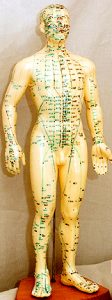Professional Register of
Traditional Chinese Medicine
 The initial consultation can typically last anything between thirty and sixty minutes. A very detailed medical case history is taken and all clients currently on a course of medication should bring this along at the first (or second) consultation.
The initial consultation can typically last anything between thirty and sixty minutes. A very detailed medical case history is taken and all clients currently on a course of medication should bring this along at the first (or second) consultation.
A thorough examination of tongue and pulse will be carried out and a brief physical examination, at the site of the problem, will be conducted where appropriate.
The entire proceedings are safeguarded by total confidentiality.
Usually the first consultation also includes an initial treatment. Such treatment will only be given after a full TCM diagnosis has been carried out by the practitioner.
Subsequent treatment sessions will last from anything between twenty minutes (the typical length of treatment time in China) up to an hour. Practitioners usually see clients once a week or sometimes once a fortnight.
This question needs to be put into its proper context to avoid confusion.
Acupuncture TCM, and other TCM treatment methods, typically treat people who complain of a deficiency or break down in their health. Such treatments can focus on physical, psychological, emotional or even spiritual disorders with equal effect.
It is safe to say that there is no sick person who cannot be helped by Acupuncture TCM treatment. However, the extent and the speed of this help will naturally depend upon a number of considerations, the chief among which are the following:
Quite often relatively healthy people come for TCM treatment to boost their general health and improve their resistance to disease. They may also wish to enhance their well-being and optimise their ability to enjoy and fulfil their lives. In such cases, clients may attend for treatment on a regular basis, without ever being sick.
In classical TCM there is a long-standing and very ancient tradition of “Superior TCM practitioners” treating people when they are well and healthy so as to optimise and prolong their health.
According to the most revered medical classics, Chinese people would not wish to wait until they became sick before going to see the TCM practitioner. Such behaviour would be regarded as being similar to one waiting for a drought before digging a well.
TCM in general, including Acupuncture TCM, Chinese Herbal Medicine and Medical Qigong can be combined with or used alongside other medical therapies and disciplines, such as western medicine.
PRTCM members only employ TCM methods of treatment, and you should still continue to consult your Western Medicine doctor, as required.
For questions or comments, you can reach us through our Contact Us page.